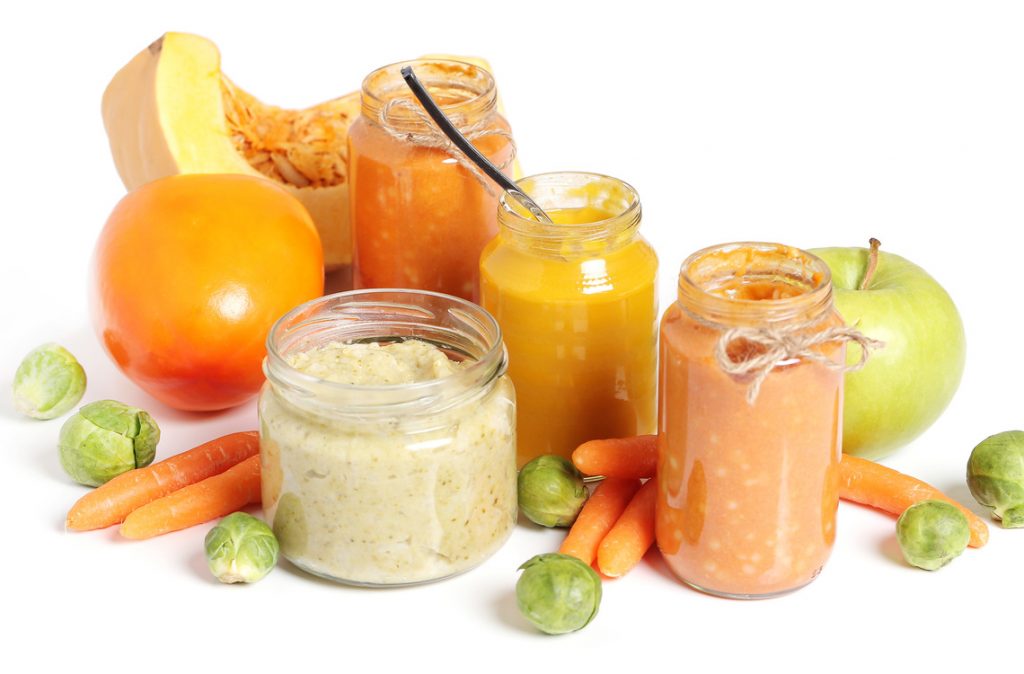I remember being a first-time mummy introducing solid foods to my baby when he was just a few months old. It was such an experiential time then, making puree after puree and finding out what baby liked and disliked.
The healthiest kinds of food to introduce to a baby would be whole foods rather than processed ones. It involves just a little more work but it’s worth it when we know that our little one is fed with nothing but the best.
When to Introduce Solids to Baby?
Generally speaking, babies are introduced to solids at around six months old. Some even start as early as four months, and some may wait a while longer. Each child is different, so you may want to look out for signs when your baby is ready by observing these physical developments:
- Your baby can sit with little or no support
- Your baby has good head control
- Your baby opens his or her mouth and leans toward food when offered
Starting Baby With Whole Foods
It is advisable to start feeding baby with single ingredients, one at a time. At each feeding, offer just one to two tablespoons of solids. After all, at this stage baby is not weaned and is still relying on milk as the main source of nutrients.
Also, give it at least three days interval before introducing a new ingredient. This is a good way to be able to identify any food allergies that baby may develop. Overlapping several foods during the same time period won’t be helpful in identifying what may have caused the allergy.
As to what to feed baby with, here are some suggested whole foods that you can mash or blend into puree:
- Apple
- Banana
- Avocado
- Sweet potato
- Carrot
- Butternut squash or pumpkin
- Pear
If you are planning to introduce cereals, ensure that it’s fortified infant cereals and not solely rice cereal. The US Food & Drug Administration does not recommend feeding baby with only rice cereal as there is a risk of baby being exposed to arsenic.
One of my go-to reference when I was making these first foods for my boys was Annabel Karmel’s site. You can check it out for more ideas and variations.
A Few Important Do’s And Don’ts When Feeding Baby
- When feeding baby, use a suitable baby spoon.
- Ensure baby is sitting upright when eating.
- Honey is not safe for baby consumption in the first 12 months.
- Ensure that the first foods are of a texture that’s easily dissolved with saliva to avoid choking.
- Do not feed pureed food from a baby bottle or a sippy cup.
- Increase the amount of solid food slowly and don’t over-feed baby.
Teaching Babies to Self Feed as They Develop
One of the joys of eating for babies is when they learn how to feed themselves. I remember watching my little one feed himself and having such a blast with his food. It goes without saying that we need to ensure baby’s safety when self-feeding.
I started mine off with a mesh feeder. I’d put in soft foods like papaya and banana into the mesh and let him hold it and eat from it. It was messy, but I believe letting our baby learn to eat by himself has many benefits.
It trains their hand eye coordination, and encourages them to develop motor skills. Self feeding also gives them new sensory experiences as they touch and feel different textures of food.
They further develop coordination skills when it’s time to move them on to using a spoon to eat. Yes, more mess will come but it’s a necessary skill.
Enjoy The Journey!
It may seem like it’s a lot more work to prepare food and wash up after baby’s mess. But it is a wonderful and exciting journey for baby to indulge in a new world of colours, food and nutrients.
Explore together with your baby, what he or she likes and dislikes, and at the same time keenly observe any food allergies that may develop. Foods that may cause them are eggs, shellfish, soy, nuts and wheat.
Also check out some of these foods that boost mental health and KIV them for the right time to feed your little one with these food.
